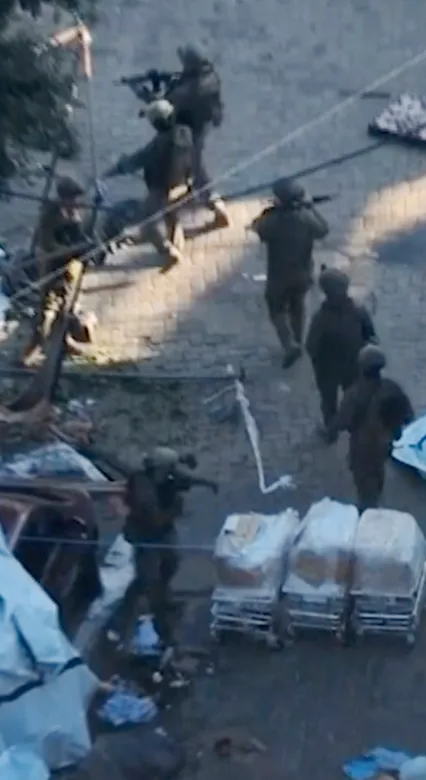
Gaza City, November 17 (RHC)-- More than 20 patients have died at Gaza’s al-Shifa Hospital in the last two days as Israeli forces continue to raid the facility, according to a hospital official and the Palestinian health ministry in Gaza.
The health ministry said on Friday that 24 patients died over the past 48 hours due to power cuts at the hospital, which has been out of service since Saturday amid a fuel shortage.
“Twenty-four patients in different departments have died over the last 48 hours as vital medical equipment has stopped functioning because of the power outage,” said health ministry spokesman Ashraf al-Qudra on Friday. Muhammad Abu Salmiya, director of al-Shifa Hospital, told Al Jazeera that 22 patients had died overnight.
The health facility has become the focus of Israel’s ground offensive in northern Gaza, with special forces combing through the facility since Wednesday amid growing international alarm about the fate of the hundreds of patients and thousands of civilians seeking shelter there.
Israel has alleged that Hamas fighters are using a tunnel complex beneath the hospital to stage attacks. Hamas and hospital officials have repeatedly denied the claims.
The Palestinian health ministry said the raid has destroyed medical services in the hospital, where the UN estimated 2,300 patients, staff and displaced Palestinians were sheltering before Israeli troops moved in.
Al-Shifa staff said a premature baby died at the hospital on Friday, the first baby to die there in the two days since Israeli forces entered. Three had died in the previous days while the hospital was surrounded by Israeli forces.
Muhammad Abu Salmiya, director of al-Shifa Hospital, told Al Jazeera that the medical compound has become a “big prison” and a “mass grave” for all those inside. “We are left with nothing – no power, no food, no water. With every passing minute, we are losing a life. Overnight, we lost 22 persons, [and] for the past three days, the hospital has been kept under siege,” Salmiya said.
Israel imposed a strict blockade and launched a military assault on Gaza last month after Hamas carried out an attack on southern Israel, killing about 1,200 people, and taking about 240 others hostage, according to Israeli officials.
The Israeli air and ground assault has killed more than 12,000 people, including 5,000 children, according to Palestinian authorities in Gaza.
Now in its seventh week, the Israeli siege has severely restricted supplies of food, water, electricity and fuel to the 2.3 million residents of the Gaza Strip, with aid agencies warning of a humanitarian crisis in the territory.
Israel has said it has agreed to a U.S. request to allow two fuel trucks a day into Gaza, following a UN warning that the shortages had halted aid deliveries and put people at risk of starvation. The amount is about half of what the UN said it needs to conduct lifesaving functions for hundreds of thousands of people in Gaza, including fuelling water systems, hospitals, bakeries and its trucks delivering aid.
The UN agency for Palestinian refugees (UNRWA) said earlier that its aid trucks were unable to enter Gaza from Egypt for a second straight day on Friday due to the lack of fuel and a near-total communications blackout that began on Thursday.
UNRWA said it would be unable to “manage or coordinate humanitarian convoys” because of the telecommunications outage.
More than half of Gaza’s hospitals are no longer functional due to combat, damage or shortages, and Israel’s raid on al-Shifa left extensive damage to the radiology, burns and dialysis units, Hamas said.
Conditions for Palestinian civilians are rapidly deteriorating, the UN warned. More than 1.5 million people have been internally displaced, and Israel’s blockade of the territory means “civilians are facing the immediate possibility of starvation”, World Food Programme head Cindy McCain said.
UNRWA said 70 percent of people have no access to clean water in south Gaza, where raw sewage had started to flow on the streets. UNRWA chief Philippe Lazzarini described children sheltering at a UN school “pleading for a sip of water, or for a loaf of bread.”

